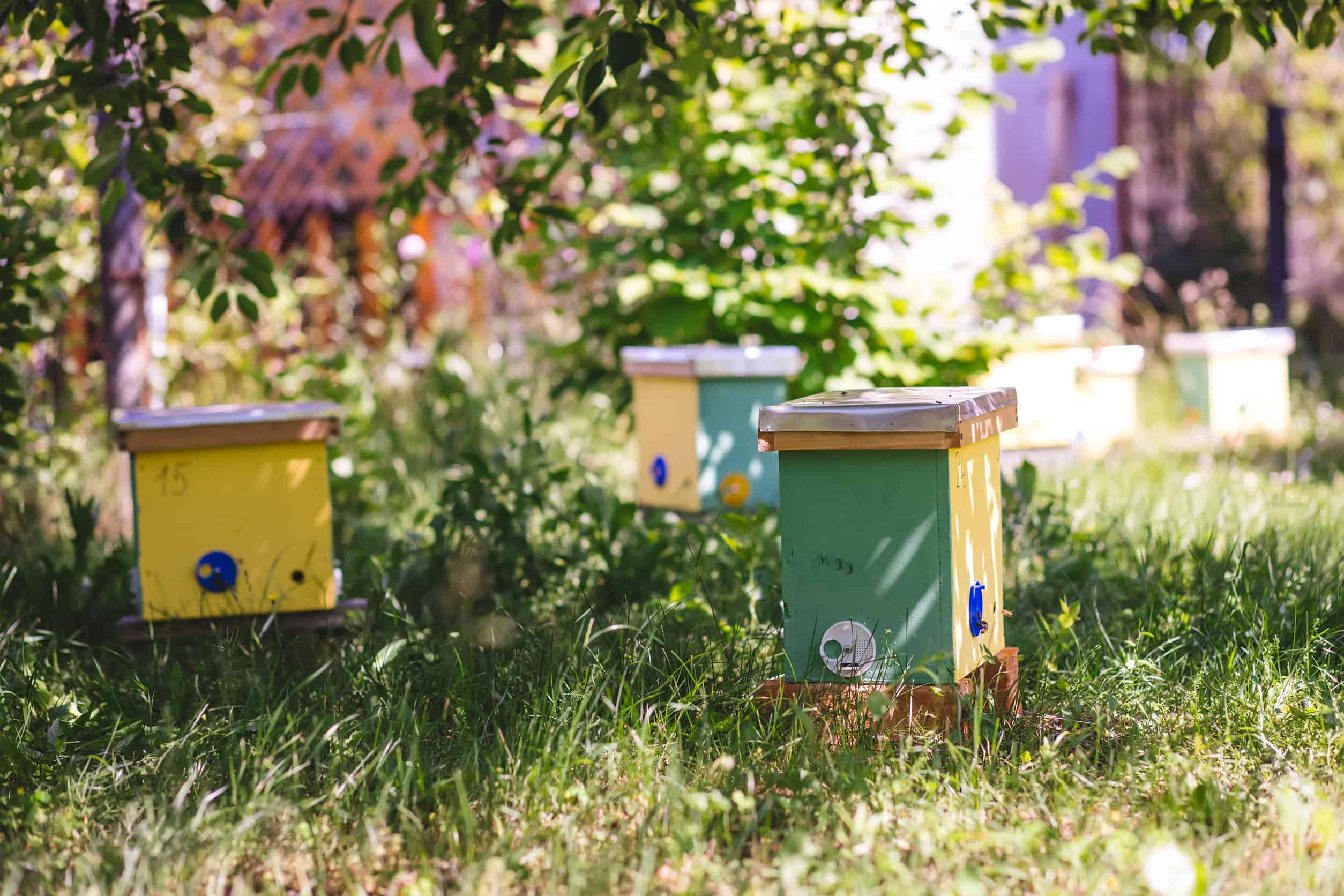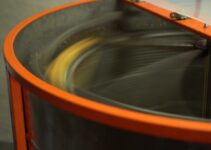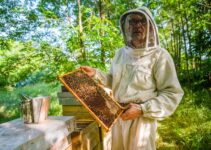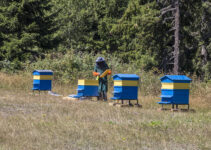A lot of beekeepers like buying NUCs of bees to start a new colony or supplement existing colonies, because when you get a good NUC it will often work better than buying regular packaged bees (something we talked about in our NUC vs Packaged Bees article!). However, it is not as easy as you may think to buy a quality NUC of bees. This full and thorough guide will hopefully help with this and give you the start you need!
What to Look for when Buying a Bee NUC
A Long Term Colony
To get the full benefit from buying a NUC of bees, you need to make sure these bees are, in fact, an established colony. This will give the colony its best chance of success. Unfortunately, some unscrupulous providers may just grab any random queen bee and thrust her together with whatever bees they can find. Instead of this, you want NUCs that have been set up and established over a good amount of time.
Ask your NUC provider how long the bees have been together, including the queen bee. Bee aware that a queen bee can last for 2-3 years, but her ability to lay will steadily decrease as she ages. So you want a group of bees that have been together for a decent time but with a queen that is still considered young.
Make up of NUC
A quality NUC needs to contain several elements for it to succeed, with little additional help upon arrival. Make sure to ask your NUC provider about:
Honey
The NUC will need some stored honey for the bees within it to survive. This is what they can survive on when all else fails. You should expect at least one frame full of honey in a typical NUC and ideally two.
Brood
Worker brood is what you want in any NUC, as it will show you the queen has been busy laying the foundations of her colony (literally). It shows you that worker bees will be ready to come into the world and strengthen the colony straight away. Again, I would look for at least one full frame of worker brood in my NUC, but the more the better (as long as it is not taking away from the honey stores too much!!).
Pollen
Pollen is stored in cells and is known as bee bread (for some reason unknown to me!). This bee bread is needed to feed the bee larvae in the colony. Having this readily available with me that your larvae can be fed right away with little hitch.
If you make sure that these three elements exist in your NUC, it will go along way to making sure it is successful!
Pest Control
Ideally, you don’t want to receive a NUC of bees that is riddled with Varroa mites (or any mites or hive beetles for that matter), or at least you need for fore warning of the possibility of a mite ridden NUC so you can be prepared! So be sure to ask the supplier of the NUC when the last time the bees were treated for Varroa and what exactly was used to do this. It gives you an idea whether you need to treat them soon after arrival, or if you are really picky you can refuse a NUC that hasn’t been treated recently.
Pro tip: if you want to get of mites from a NUC without using chemicals, another option is to feed them powdered sugar when it first arrives. This usually gets rid of the majority of any mites that may be there.
Buy it at the Right Time!
Most NUCs are made or produced around Spring, as this is when there is the nectar flow to support the stability and growth of the NUCs. Therefore, make sure to buy your NUC as close to Spring as possible, then you know that it is still a relatively fresh colony. NUCs are ‘in season’ just like those fruit and vegetables you buy down the supermarket!




